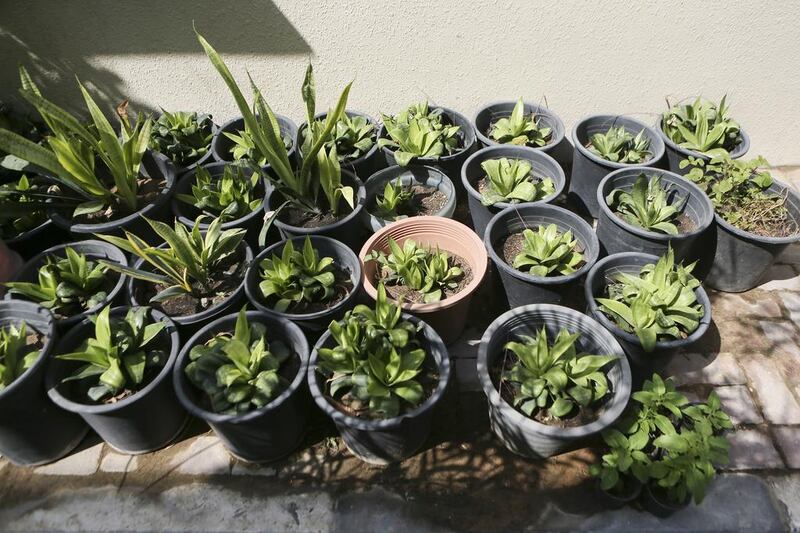Who doesn't love the idea of a greener country and a greener planet? Contrary to popular opinion, there are a lot of plants and trees that grow well in the UAE's hot climate. While you may not be plucking a juicy pear off your tree in Jumeirah any time soon, a fresh home-grown tomato salad is well within your reach.
If gardening is not really your thing, start small, with indoor plants because they generally require very little care. These plants not only help brighten up your space, but are also great for your health. Indoor plants purify the air we breathe, making them an ideal investment for your home or office.
Most indoor plants don’t require sunlight; photosynthesis is generated with the help of indoor light. Depending on the type of plant, watering has to be done once in three to 10 days. Smaller pots require frequent watering, while larger pots have to be watered less frequently, but in larger quantities.
The most common mistake people make with indoor plants is to overwater them. The rule of thumb to follow is to stick your finger into the soil; if it’s dry for more than an inch deep, it’s time to water. Your plant shop should give you specific instructions for each plant, so be sure to follow them. Keep in mind that if you have flowering plants, their soil needs to be fertilised once a month. Non-flowering plants need their soil fertilised twice a year.
Outdoor plants require different and more frequent care. For one thing, they need to be watered daily, regardless of whether they are in pots or in the ground. For another, they require at least two hours of direct sunlight every day. In the UAE, however, be careful to avoid direct sunlight from 11am to 3pm, especially during the summer. A simple solution is to build a shade using green netting during those months to protect your plants. Outdoor plants also need to be fertilised once a month to help them grow properly, for which you can use an NPK fertiliser, which has nitrogen, phosphorus and potassium.
____________________
Read more:
[ Design dilemma: The home office is dead; long live working from home ]
[ Design dilemma: Accessible art for all, not just the few ]
[ Design dilemma: The little things make a difference ]
____________________
Keep a sharp eye out for wilting, yellowed leaves. It could be a sign of over or under-watering, or even over-fertilising your plants. Also look out for insects and pests. A simple method to keep your plants safe is to ring them with eggshells. Wash and dry eggshells, crush them in your hand and scatter them around your plants. They keep insects away and also nourish the soil. Neem oil is also a great natural insecticide for both indoor and outdoor plants. A mixture of neem oil, mild soap and water can keep most pests away, and is not harmful to the environment.
In the UAE, it's always a good idea to start your planting during the winter. Seeds are easily available in the market, and it's a joy to watch your seeds sprout and grow into beautiful plants. For those new to gardening, some of the easiest plants to start with are sunflower, mint, tomato, eggplant, moringa, basil, pumpkin and watermelon. Some of the easiest indoor plants to grow in this climate are money plant, zamia, areca palm, peace lily and snake plant. Plants such as desert rose, jasmine, bougainvillea, Texas ranger, plumbago, and trees such as poinciana, neem and olive are good for the outdoors.
There's a wealth of information on gardening online. While generic articles and videos are useful, keep in mind that they're usually made for a colder climate. Always take the UAE's weather into account when following sources from other countries. Many outdoor flowering plants and fruit trees go dormant in harsh climates. If your rose plant seems inactive during the summer, don't worry, it's just hibernating. It will put out new leaves and flowers in cooler weather.
Plantshop.ae is an online seller of plants and gardening accessories





